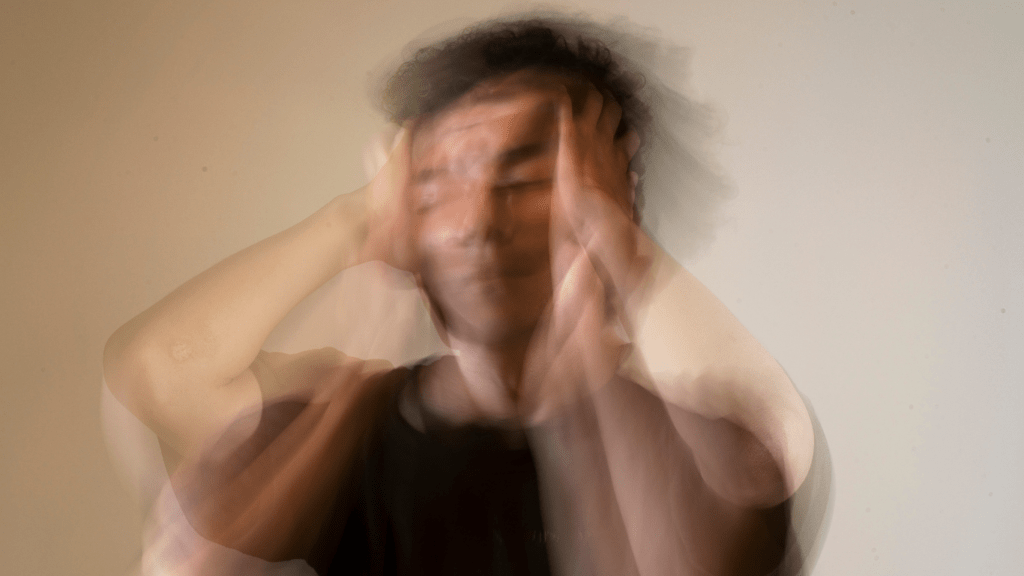Feeling overwhelmed by anxiety and depression can be a challenging journey, but it’s one that many of us navigate at some point in our lives. In my experience, finding effective coping mechanisms is crucial in managing these mental health struggles. In this article, I’ll share insights on overcoming anxiety and depression, offering practical strategies to help you regain a sense of balance and well-being.
Navigating the complexities of anxiety and depression requires a personalized approach, as what works for one person may not work for another. Through my own battles with these issues, I’ve discovered the power of mindfulness, exercise, and seeking support from loved ones. By incorporating these coping mechanisms into your daily routine, you can take proactive steps towards improving your mental health and overall quality of life.
Understanding Anxiety and Depression
When it comes to understanding anxiety and depression, it’s crucial to differentiate between the two and recognize the common symptoms they exhibit. These mental health conditions can often overlap in symptoms, yet they have distinct characteristics that define each of them. By being aware of these differences and recognizing the signs, individuals can better navigate through their struggles and seek appropriate help.
Differentiating Between Anxiety and Depression
I’ll highlight the key disparities between anxiety and depression to help distinguish one from the other. Anxiety typically manifests as intense worry, restlessness, and a sense of impending doom, while depression is characterized by persistent feelings of sadness, hopelessness, and a loss of interest in previously enjoyed activities. Understanding these distinctions is vital in determining the most effective coping strategies for each condition.
Common Symptoms of Anxiety and Depression
In this section, I’ll delve into the common symptoms shared by anxiety and depression, such as changes in sleep patterns, appetite disturbances, and difficulty concentrating. By recognizing these shared symptoms, individuals can better identify when they might be experiencing a combination of anxiety and depression, prompting them to seek professional guidance and support.
Importance of Seeking Professional Help
When facing anxiety and depression, one crucial step in overcoming these challenges is seeking professional help. As someone who has navigated these mental health issues, I understand the significance of reaching out to therapists and counselors for support.
Therapy and Counseling Options
In my experience, therapy and counseling have been instrumental in managing my anxiety and depression. There are various options available, including individual therapy, group therapy, cognitive-behavioral therapy, and more specialized approaches like dialectical behavior therapy. These avenues provide tailored strategies to address specific symptoms and help in developing coping mechanisms for long-term mental well-being.
Implementing Healthy Lifestyle Changes
Incorporating healthy lifestyle changes is crucial in managing anxiety and depression. I focus on maintaining a balanced routine that includes regular exercise, a nutritious diet, and sufficient sleep. Physical activity, whether it’s a brisk walk, yoga, or strength training, helps elevate mood and reduce stress.
A well-rounded diet rich in fruits, vegetables, whole grains, and lean proteins provides essential nutrients for overall well-being. I ensure I prioritize self-care by staying hydrated and avoiding excessive caffeine and sugary foods that can negatively impact my mental health.
Quality sleep is fundamental in managing symptoms of anxiety and depression. I prioritize a consistent sleep schedule, create a relaxing bedtime routine, and optimize my sleep environment for restful nights. Adequate rest plays a key role in regulating emotions and enhancing cognitive function.
Engaging in hobbies and activities that bring joy and relaxation is another aspect of my healthy lifestyle approach. Whether it’s reading, painting, or spending time in nature, I prioritize activities that help me unwind and recharge. Taking breaks and practicing mindfulness techniques throughout the day also contribute to my overall mental well-being.
By implementing these healthy lifestyle changes, I optimize my mental health and build resilience against the challenges of anxiety and depression. Balancing physical activity, nutrition, sleep, and self-care practices has been instrumental in my journey towards improved mental well-being.
Exploring Effective Coping Mechanisms
Transitioning from understanding anxiety and depression to effectively managing them involves implementing practical coping mechanisms. Combating these mental health challenges requires a multifaceted approach that integrates various strategies into daily routines. Here, I delve into actionable coping mechanisms that can significantly impact one’s mental well-being.
- Prioritizing Self-Care
Self-care plays a pivotal role in managing anxiety and depression. Incorporating self-care practices into daily life can help reduce stress levels and improve overall mental health. Engaging in activities that bring joy and relaxation, such as reading a book, taking a warm bath, or spending time in nature, can promote emotional well-being. By prioritizing self-care, individuals can nurture themselves and cultivate a sense of inner peace. - Cultivating Mindfulness
Practicing mindfulness is a powerful tool in alleviating symptoms of anxiety and depression. Mindfulness involves being fully present in the moment, acknowledging thoughts and emotions without judgment. Techniques like meditation, deep breathing exercises, and yoga can help individuals cultivate mindfulness and increase their resilience to negative thoughts. By incorporating mindfulness practices into daily routines, individuals can enhance self-awareness and better manage stress.
Building Supportive Relationships
Social connections play a vital role in mental health management. Seeking support from friends, family members, or support groups can provide comfort and reassurance during challenging times. Openly communicating feelings and emotions with trusted individuals fosters a sense of belonging and reduces feelings of isolation. Building strong, supportive relationships can create a network of encouragement and understanding, helping individuals navigate through difficult periods with greater ease.
Engaging in Physical Activity
Regular exercise is not only beneficial for physical health but also crucial for mental well-being. Physical activity releases endorphins, which are neurotransmitters that promote feelings of happiness and reduce stress levels. Whether it’s going for a brisk walk, practicing yoga, or hitting the gym, incorporating exercise into one’s routine can significantly alleviate symptoms of anxiety and depression. The positive effects of exercise on mood make it a valuable coping mechanism in the journey towards better mental health.
Embracing Healthy Habits
Healthy lifestyle habits, including maintaining a nutritious diet and prioritizing quality sleep, are integral to managing anxiety and depression. Consuming a balanced diet rich in essential nutrients can support brain function and improve mood stability. Additionally, establishing a consistent sleep schedule and ensuring adequate rest allows the body and mind to recharge effectively. By embracing healthy habits, individuals create a strong foundation for mental well-being and resilience against the challenges of anxiety and depression.




 David Benefiel is a seasoned fitness professional and passionate writer for My Healthy Living and Strategies, where he focuses on delivering practical advice for maintaining a balanced and healthy lifestyle. With years of experience in strength training, nutrition, and holistic wellness, David offers in-depth guidance to help readers achieve their personal health goals, whether through tailored fitness plans, dietary changes, or mental wellness practices.
David Benefiel is a seasoned fitness professional and passionate writer for My Healthy Living and Strategies, where he focuses on delivering practical advice for maintaining a balanced and healthy lifestyle. With years of experience in strength training, nutrition, and holistic wellness, David offers in-depth guidance to help readers achieve their personal health goals, whether through tailored fitness plans, dietary changes, or mental wellness practices.